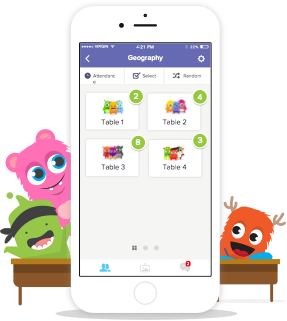
Introducing ClassDojo Groups :)
ClassDojo
2015-07-21
“Most great learning happens in groups. Collaboration is the stuff of growth.” – Sir Ken Robinson
From day one, ClassDojo has been built by listening to teachers and students. Today, after working with many wonderful teachers around the world, we’re proud to unveil our most exciting new feature: ClassDojo Groups!
ClassDojo Groups is the easiest way for teachers to bring teamwork to their classrooms. Groups gives teachers the ability to group students any way that works for their classroom: tables, project teams, reading groups, school houses – or even all of these! Teachers can then encourage the whole group, as well as any student in the group, with just ‘one tap’.



